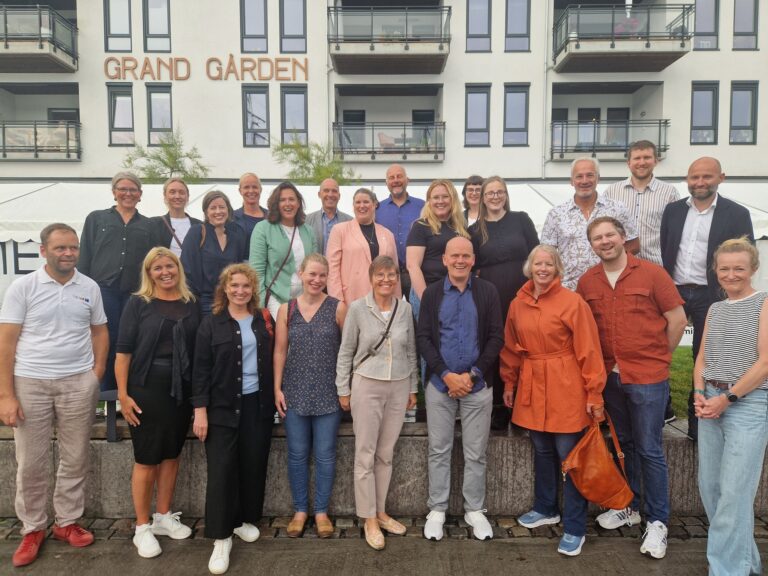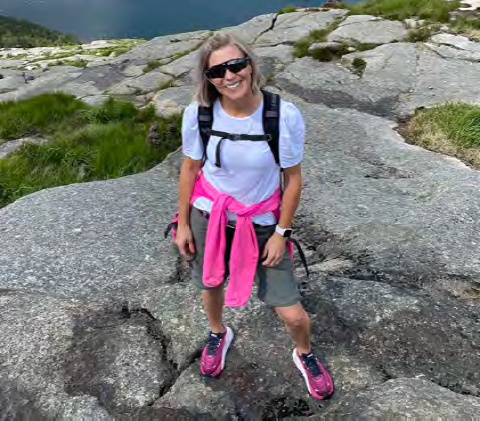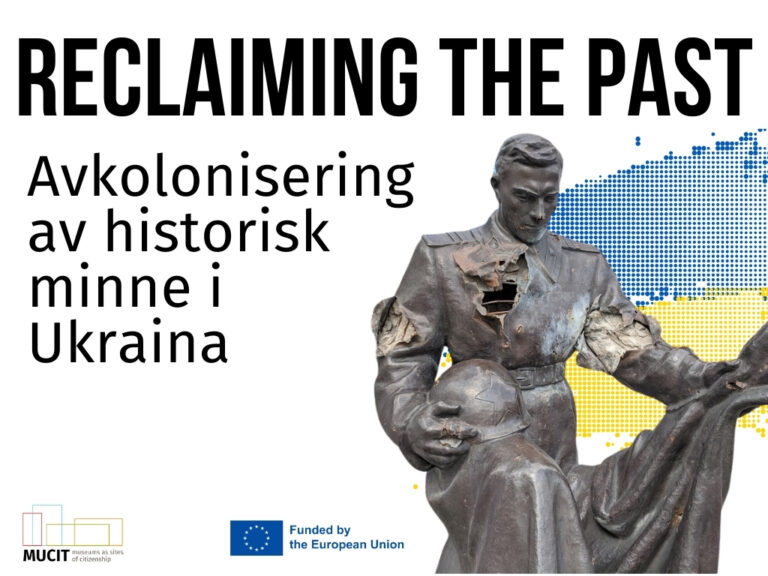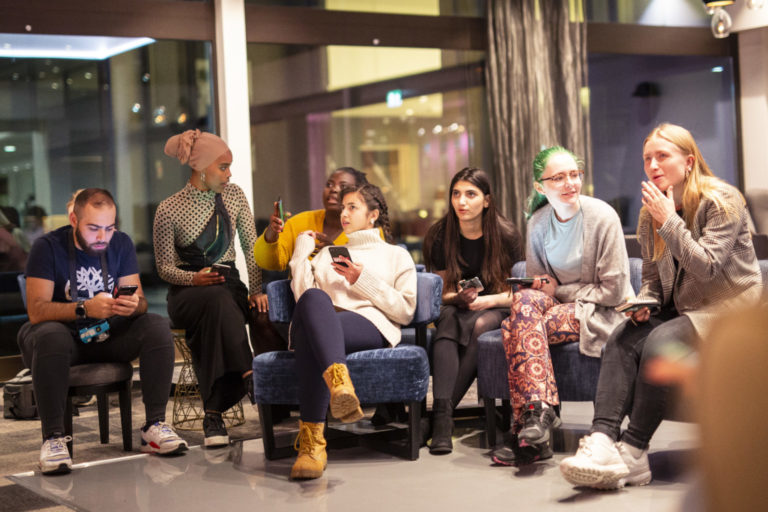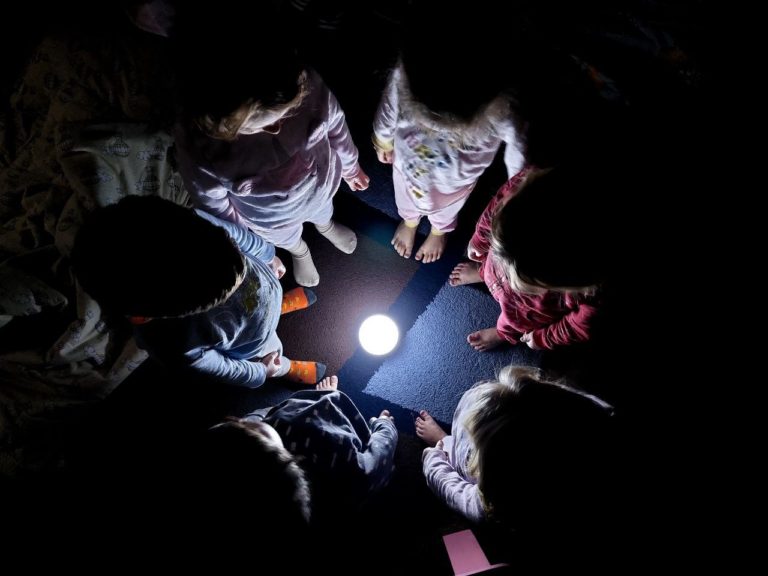Students at Ivan Trush Gymnasium in Brody, Ukraine, were tired of being passive participants of school events organized by the teachers, having no real impact on school life. To change things they launched their own version of TED-Talks: Almam Talks.
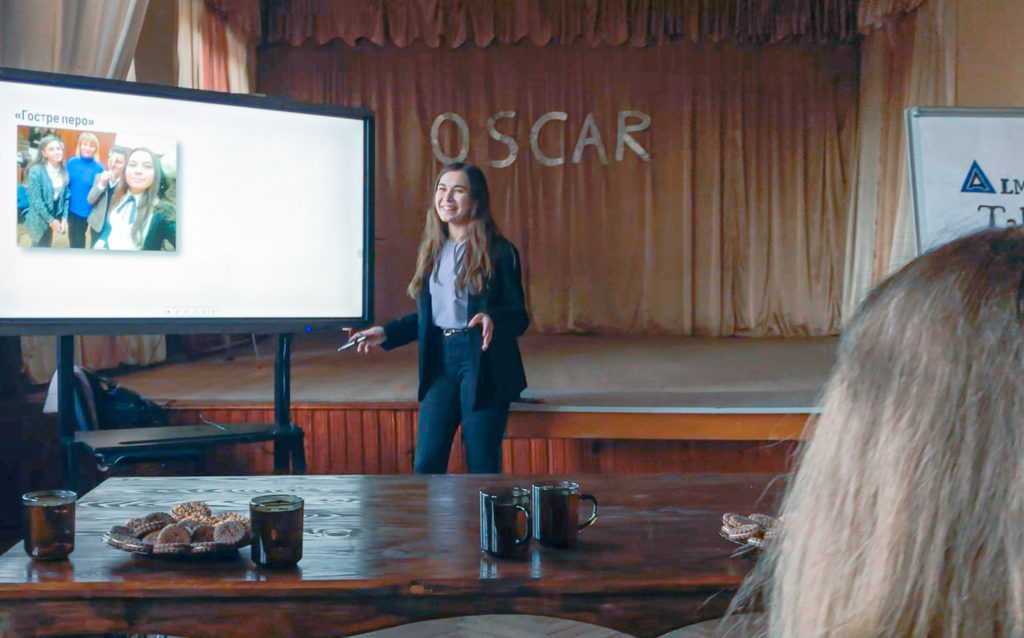
The transformation included a revival of the student self-government (School Board), planning of its work, conducting the elections and organizing debates with school administration about school life and other matters.
Meanwhile, the parents participated in a discussion of school projects and the teachers took part in workshops on formative assessment and youth engagement. As a result, many students’ initiatives are being implemented at school in a new way (artistic contests Dance Battle and Miss School, charity fairs, Christmas festivals, thematic parties, etc.).
The students worked with the teachers in teams that drafted school self-government regulations, while together with the parents they developed school rules. The parent committee together with the School Board worked on improving school cafeteria services.
The most impressive achievement is a student peer support group that works in the TED-talks style. The students have devised its programme, created the name and logo, selected and invited the speakers from among their peers, alumni, and parents, and organized a number of interesting meetings that have been attended by more than 200 students.
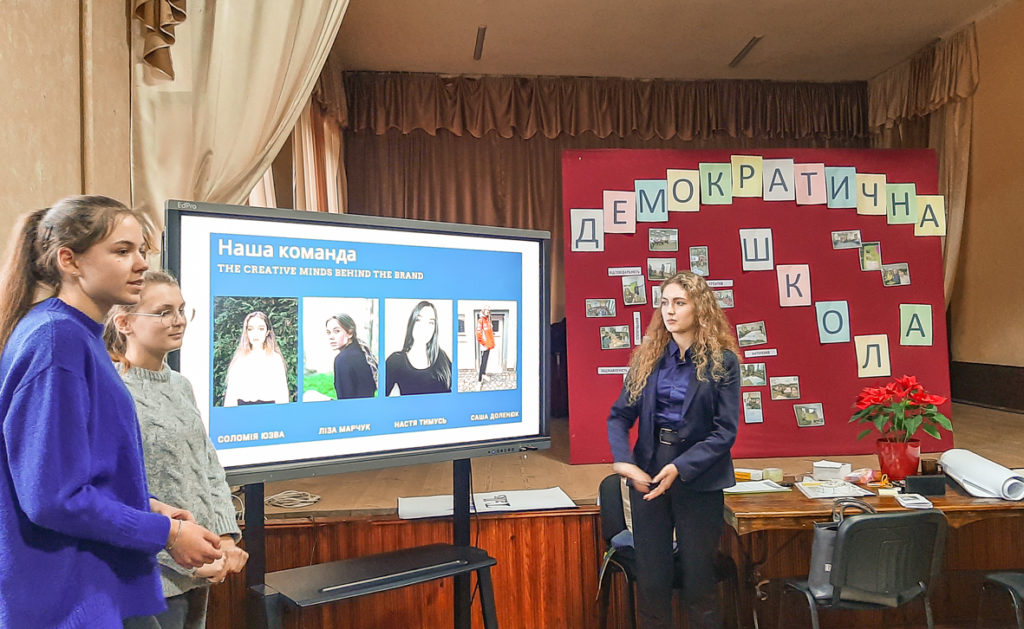
Focus on Self-Education
Many school students attended various youth self-development forums, so some of them volunteered to organize a similar series of events in Brody. Although they were familiar with both the form of the activity and its idea, the participation in Schools for Democracy facilitated the success.
During the first meetings with the Programme trainers, the students, parents, and teachers analyzed the situation at school and identified problems and obstacles that blocked its development. The workshops helped them accumulate ideas, analyze “pros” and cons,” and master democratic tools that both empowered them and gave new possibilities to be used in school work. They devised a plan of action and started its implementation.
The initiative aimed to show that learning does not necessarily mean piles of manuals, long writing assignments, and life reduced to attending classes. Self-education is important, interesting and should be something considered by everyone. Moreover, new technologies make self-education accessible to everyone.
For the students, the school is alma mater, so the title of the new initiative came naturally: “This is School Speaking” or “Almam Talks.” The project aims at self-development and informal interaction, hence its popularity among the students of different ages. The talks are given by the students and teachers as well as invited speakers, and their themes are attractive to many.
The talks take place in a relaxed atmosphere, with tea and cookies. The participants not only get useful information about the world but also take part in friendly discussions and the sharing of ideas. Registration is required. All news and registration links are available at the school Instagram account. In social networks you may find announcements about the talks, their brief descriptions, and information about deadlines.
Nearly 90 percent of talks are given by the students and alumni, therefore it is an invaluable experience for the young people. The students find such events inspiring because they have few chances to learn and discuss themes that are not included into school curriculum. The Almam Talks team of Ivan Trush Gymnasium in Brody discusses emotional intellect, psychological approaches to communication, issues of self-motivation and self-awareness, etc. For example, the eleventh graders gave talks entitled “Make Stress Your Friend,” “Journalists Start at School or Writing is Easy” as well as talks about time-management, or subjects discussed in the English speaking club. The school alumni who are now university students gave talks on reproductive health and self-management of university students.
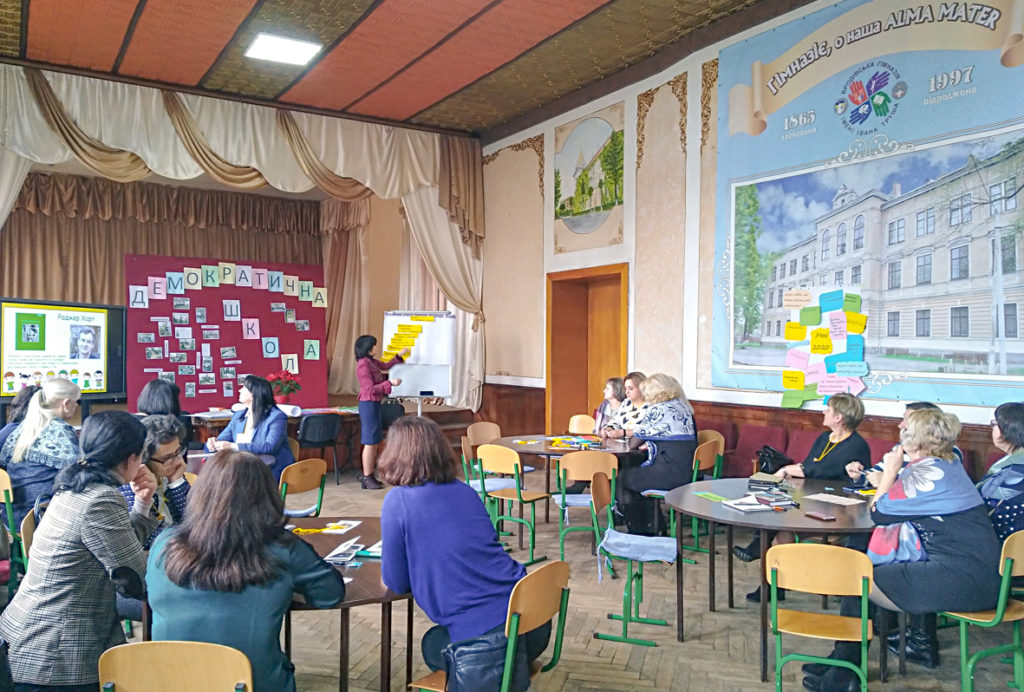
Sofia S. from Grade 7A has shared her impressions: “I liked the topic, a relaxed atmosphere of the talk, and the presentation style. It’s cool that teenagers at our school can discuss such issues. My favorite part of any talk is the life stories of the presenters”.
Feedback is an important element of the project. The participants are requested to fill in a Google form, describe their impressions, and suggest topics for the future talks. Thanks to feedback forms we know that the school students enjoy the project, follow speakers’ advice and look forward to new events of the Almam Talks. The speakers willingly respond to the questions that the students may ask them on the following days when they see each other during school breaks.
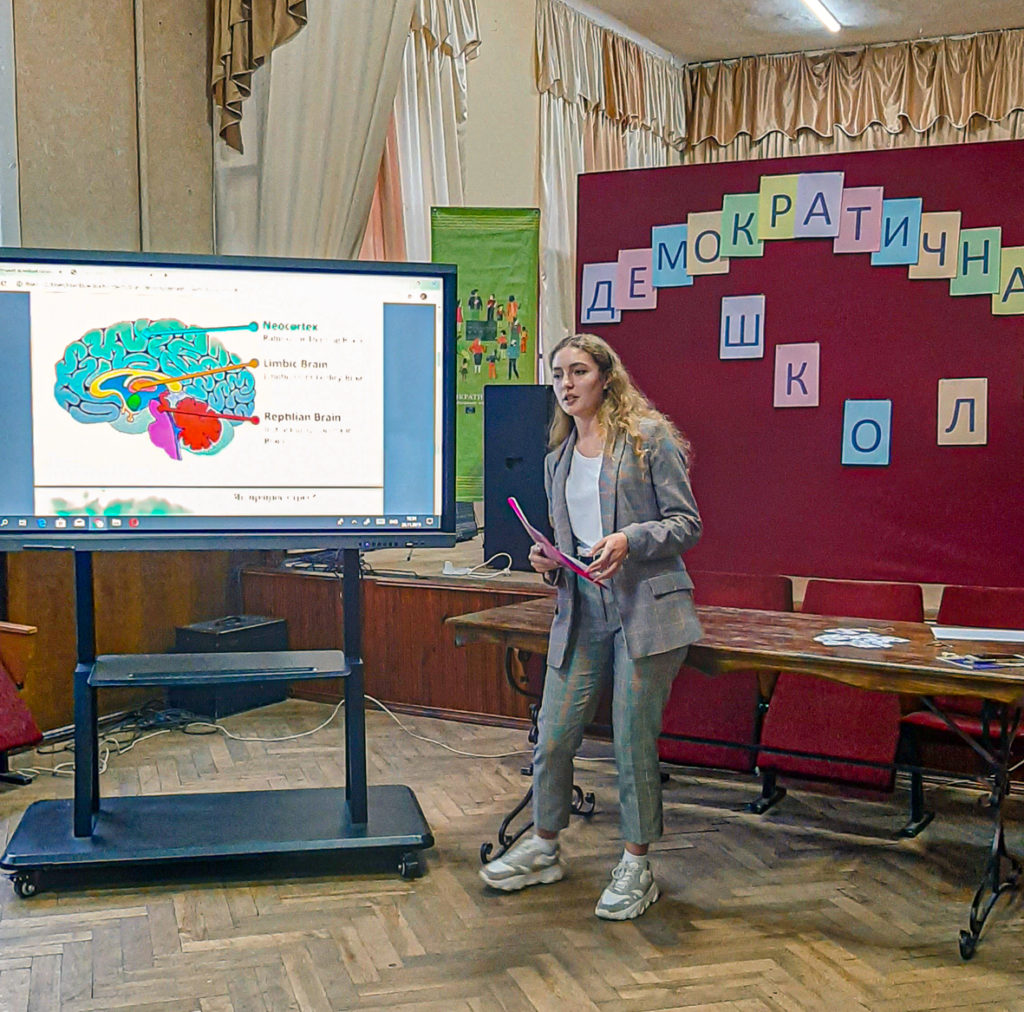
Transformation Continues
Oleksandra from Grade 11 says,” With Schools for Democracy my vision of school has changed. I realized that to a large extent, school life depends on us, i.e., its students. Now school for me is not only a place where I do math or physics. It is the place where I can develop social skills, learn how to work in a team and plan my future. A transformation of school started at the student’s level. We have created a powerful School Board that initiates and organizes school events. The team is getting bigger, more active, and efficient”.
The Almam Talks team plans to keep working on the project, so that each school student could acquire and polish public speaking, active listening, and discussion skills and develop as an individual of the 21st century. In the meantime, the project members train their followers ̶ fifth- and sixth graders. They teach the younger peers how to launch a project and prepare an event, and how to delegate responsibilities and tackle problems that emerge when you are organizing an event. It was exactly the aim of the project: to transfer motivation to a younger generation, not to waste the experience, and help the student community moving forward.
Brody Gymnasium has other plans as well – for example, the introduction of democratic governance principles among the teachers. Besides, the school would like to improve its collaboration with the parents and local community. The results of the previous projects prove that the implementation of new ideas is only a matter of time.
